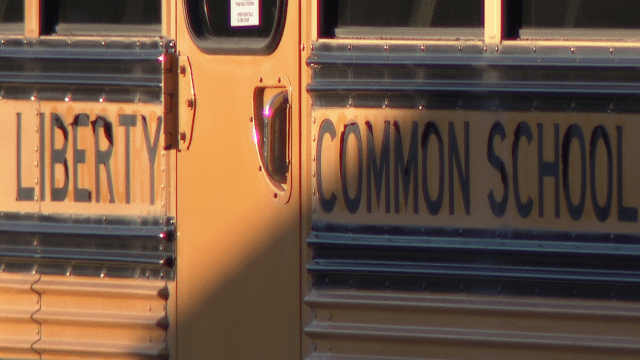Instructions

In a troubling revelation, the Office for Civil Rights (OCR) has uncovered a disturbing case of racial harassment targeting a high school sophomore in Fort Collins during the current academic year. The investigation exposed a pattern of discriminatory behavior that raises serious concerns about student safety and inclusivity within the school environment.
Uncovering Racial Harassment: A Deep Dive into Civil Rights Challenges at Liberty Common School
In the heart of Fort Collins, a troubling narrative of racial discrimination has emerged, bringing to light the complex challenges facing students in modern educational environments. The recent investigation by the Office for Civil Rights (OCR) reveals a deeply concerning pattern of racial harassment that demands immediate attention and comprehensive understanding.
Confronting Systemic Prejudice in Educational Institutions
The Landscape of Institutional Racism
The revelation of racial harassment at Liberty Common School exposes a critical issue that extends far beyond a single incident. Educational institutions have long struggled with creating truly inclusive environments where every student feels safe, respected, and valued. This particular case in Fort Collins serves as a microcosm of broader systemic challenges that continue to plague educational settings across the United States.
Racial discrimination in schools is not a new phenomenon, but its persistent nature continues to undermine the fundamental principles of equal opportunity and mutual respect. The experience of the sophomore student highlights the urgent need for comprehensive strategies to address and prevent racial harassment.
Investigating the Depth of Racial Harassment
The Office for Civil Rights' investigation represents a critical step in understanding the nuanced dynamics of racial interactions within educational environments. Detailed examinations reveal that racial harassment often manifests in subtle and complex ways, making it challenging to identify and address effectively.
Multiple factors contribute to the perpetuation of such behaviors, including systemic biases, lack of cultural awareness, and insufficient institutional mechanisms for reporting and addressing discriminatory incidents. The investigation likely delved into the specific circumstances, examining patterns of behavior, institutional responses, and the broader cultural context that enables such harassment.
Impact on Student Well-being and Academic Performance
Racial harassment carries profound psychological and academic consequences for targeted students. The emotional toll can be devastating, potentially leading to increased stress, decreased academic motivation, and long-term mental health challenges. Students experiencing such discrimination often report feelings of isolation, anxiety, and diminished self-worth.
Educational institutions must recognize that racial harassment is not merely a disciplinary issue but a fundamental threat to students' ability to learn and thrive in academic environments. The psychological impact extends beyond the immediate incident, potentially influencing a student's entire educational trajectory.
Legal and Institutional Implications
The OCR investigation brings significant legal and institutional implications for Liberty Common School. Federal civil rights protections mandate that educational institutions provide environments free from discrimination and harassment. Failure to address such issues can result in substantial legal and financial consequences.
Schools must develop robust policies, training programs, and reporting mechanisms that proactively prevent racial harassment. This requires a holistic approach involving students, educators, administrators, and community stakeholders.
Pathways to Meaningful Change
Addressing racial harassment demands more than punitive measures. Educational institutions must commit to comprehensive cultural transformation, including diversity training, inclusive curriculum development, and creating supportive reporting mechanisms.
Meaningful change requires ongoing dialogue, genuine commitment to understanding diverse experiences, and a willingness to challenge existing institutional norms. This involves creating spaces where students can openly discuss their experiences, feel heard, and see tangible actions taken to address systemic inequities.
Community and Parental Engagement
Combating racial harassment requires a collaborative approach involving the entire community. Parents, local organizations, and community leaders must work together to create supportive environments that reject discriminatory behaviors and promote mutual understanding.
Schools cannot solve these challenges in isolation. Community-wide conversations, educational workshops, and collaborative initiatives are essential in creating lasting cultural shifts that promote respect, empathy, and genuine inclusivity.

